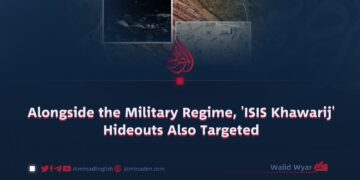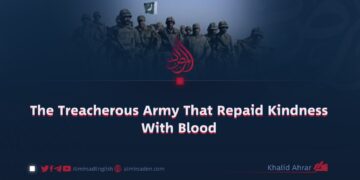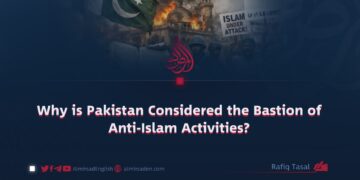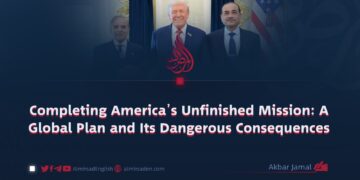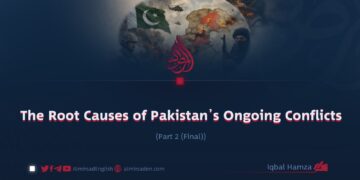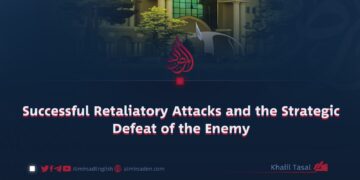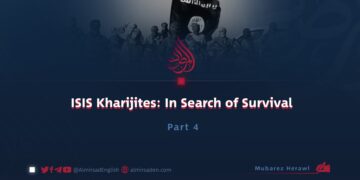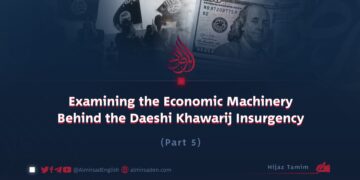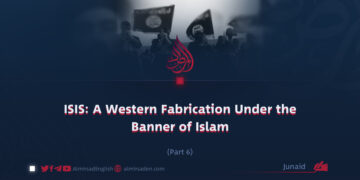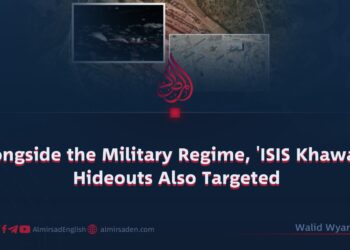Author: Ahmad Hisham Al-Kurdi
Scholars have extensively discussed the Khawarij from an Islamic perspective. Based on Hadiths and Islamic history, the Khawārij are individuals who have distanced themselves from the Muslim community and embraced extremism and rigidity.
The Prophet Muhammad (peace be upon him) warned about the dangers of the Khawarij and recommended fighting against them. He mentioned their threat in a Hadith:
يَخْرُجُ فِي آخِرِ الزَّمَانِ قَوْمٌ حُدَثَاءُ الْأَسْنَانِ، سُفَهَاءُ الْأَحْلَامِ، يَقُولُونَ مِنْ خَيْرِ قَوْلِ الْبَرِيَّةِ، يَقْرَءُونَ الْقُرْآنَ لَا يُجَاوِزُ حَنَاجِرَهُمْ، يَمْرُقُونَ مِنَ الدِّينِ كَمَا يَمْرُقُ السَّهْمُ مِنَ الرَّمِيَّةِ، فَإِذَا لَقِيتُمُوهُمْ فَاقْتُلُوهُمْ، فَإِنَّ فِي قَتْلِهِمْ أَجْرًا لِمَنْ قَتَلَهُمْ عِنْدَ اللَّهِ يَوْمَ الْقِيَامَةِ. (بخاري او مسلم)
Translation:
“In the latter days, there will appear a group of people who are young in years and immature in intellect. They will speak with the best words of creation, recite the Qur’an, but it will not go beyond their throats. They will abandon the religion as swiftly as an arrow pierces its target. So, if you encounter them, kill them, for in killing them there is a reward with Allah on the Day of Judgment.” (Bukhari and Muslim)
As per this Hadith, the Prophet (peace be upon him) emphasized the reward for eradicating the Khawārij, underscoring the gravity of their threat. Islamic scholars interpret this reward as an incentive to safeguard Islam and Muslims by confronting the Khawarij, who pose a substantial risk to the Muslim community, threatening its unity and peace.
Combating the Khawārij is also deemed a noble deed as they propagate fear, turmoil, and violence within the Muslim Ummah, leading people astray and twisting the true essence of Islam. Opposing their extremist ideology and violence is imperative for upholding the unity and tranquility of the Muslim community.
Today, numerous scholars identify groups that stray from Islamic principles and propagate extremism, violence, and harm to innocent individuals as modern-day Khawārij. Scholars argue that ISIS and akin groups exhibit akin characteristics to the Khawarij by exploiting Islam to advance their extremist ideologies and sowing fear and turmoil within the Ummah.
In Islamic jurisprudence and history, numerous scholars hold a favorable perspective on combatting the Khawarij. They argue that such an endeavor should solely be undertaken under the supervision of authorized governmental and religious entities in order to efficiently eradicate their radicalism and insurrection, and safeguard innocent Muslims.
These scholars maintain that the Khawārij consist of individuals who adhere to an extremist interpretation rather than Islamic jurisprudence, and categorize Muslims who dissent against their ideals as “disbelievers.”
Hanafi scholars emphasize that combating the Khawārij should be carried out under the guidance of a legitimate Islamic government or state authority. Individual or unauthorized warfare is not in accordance with Islamic principles. According to Hanafi jurisprudence, the maintenance of order and the prevention of discord fall under the jurisdiction of the Islamic government and legitimate authorities.
In essence, the directive to combat the Khawarij is considered permissible and virtuous when they perpetrate violence and corruption within the Muslim community, resulting in the shedding of innocent blood.
Even in the present time, ISIS Khawarij are involved in bloodshed and destabilization among Muslims, and decisive action against them should be taken under the command of a ruling Islamic government to protect society and safeguard the Ummah from extremism and corruption.













